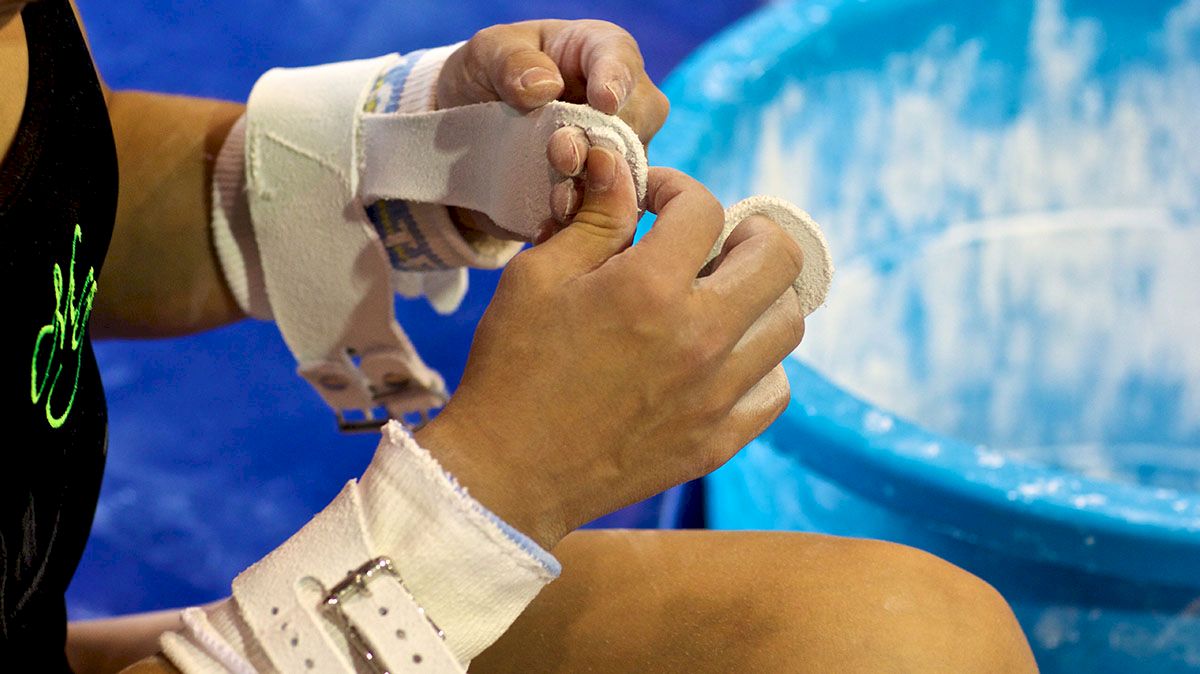Top 10 Ways to Conquer Fears in the Gym
Top 10 Ways to Conquer Fears in the Gym

As a gymnast, have you ever been fearful in practice? Ever had to practice that one skill, or routine, that exponentially raised anxiety levels just thinking about it? Fear is an inevitable part of life, and can be found in gymnastics everyday, even in every turn a gymnast takes. It’s a powerful emotion that can override all other thoughts and priorities, which is why this is a particularly devastating feeling for gymnasts, who put themselves at risk every day. In order to reach their full potential, athletically and mentally, a gymnast needs to persevere through the hard days, and remain mentally strong in the midst of stressful situations. Below are ten steps a gymnast can follow in order to overcome their fear, so they can instead, focus on improving themselves as people, and athletes. The more a gymnast can gain insight into their internal obstacles, the greater their ability will be to contain and manage anxieties, inside and out of the gym.

1. Acknowledge your fear- Is it a specific skill? Routine?
Courage is never obtained when avoiding anything we may be scared of. Athletes need to face fears head on and exhibit strength and bravery in practice. The first step is to name your fear- make it clearly known by letting it rise to the surface of your mind, giving you the ability to analyze it. Helpful tactics include writing it down, keeping a journal in order to track your progress as you word to conquer your goal.
2. Define its boundaries.
Ask yourself these questions: What is the history of this fear? Did you have a bad fall? Injury? How are you affected by constant fear in practice?
3. Be open with your coach about what problems you have.
If there is anyone who needs to be aware of any issues you may have as a gymnast, it’s your coach. Coaches are your leaders in the gym, who guide and strengthen you so that you can obtain ultimate success and fulfill your highest potential. They need to be aware of issues you may have, no matter how big or small, so they can act as a support system and help you work through the negative emotions.
4. Focus on your mental game.
Mental toughness is a significant factor that contributes to an athlete’s overall success. In this step, you need to focus your energy on keeping your mind sharp, so as to avoid any weakness that will result in digression from your progress. Mental toughness allows you the ability to travel beyond physical ability, tapping into the mental aspect of performance optimization.
5. Imagine every skill in your routine, writing a positive script in your imagination.
Using your journal, write down every element in your routines, the thoughts and emotions you experience during the routines, and your ultimate goal. The goal you have doesn’t necessarily have to be a physical feat- Is it winning? Is it finishing? Is it an improvement you want to make?
6. Visualize a positive result and replay it over and over in your head.
Taking your written goal from the previous step, utilize visualization tactics throughout the day to imagine yourself achieving your goal.
7. Challenge and replace negative self-talk with positive self-talk.
You can experiment with a number of different verbal and mental cues to ensure control of your mind and performance. When you begin to feel weak, and think “I’m too tired… I can’t do this…”, you can replace the message with, “Relax and trust myself.”
8. Relax and trust your physical ability and training.
The mental components of these steps have concluded, and now it’s time to trust your ability and take a deep breath. With a strong mental game, any gymnast can face their fears head on, all the while utilizing the techniques in the previous steps, in order to come out successful.
9. Practice.
Often in life, especially in gymnastics, we are afraid of things because we haven’t had much exposure to what we’re afraid of, also known as, Fear of the Unknown. You need to begin practicing what scares you, attempting the skill or routine a couple times a day, until you build a gradual resiliency to the mean of anxiety. You will begin to gain a better understand of the physics of the skill, increasing knowledge of, and comfortability with, the skill in question.
10. Keep the momentum going.
It takes a lot of determination and momentum when conquering fears, and when failures and setbacks arise, which they will, you will want to give up- Don’t! Stay determined to conquer your anxiety, even when it seems impossible. Keep your mental game strong, and continually work to talk positively about yourself, and about your surroundings.